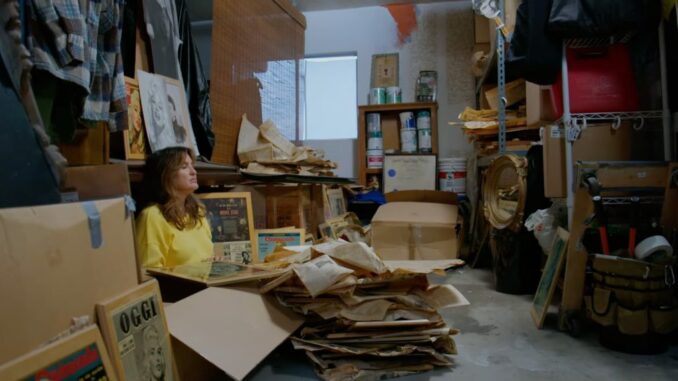
More Than a Legacy: Mariska Hargitay, Jayne Mansfield, and the Long Shadow of "My Mom Jayne"
The enduring allure of Hollywood lies in its ability to conjure dreams, but equally compelling are the stories that whisper of the darkness lurking beneath the glittering surface. Mariska Hargitay's upcoming documentary, "My Mom Jayne," promises to explore this duality through the complex and often tragic life of her mother, Jayne Mansfield. More than just a tribute, the film is already generating buzz as a potential frontrunner, not just for its subject matter, but for the deeply personal lens through which it's being examined. It's a story poised to resonate, not only for its celebrity pedigree, but for its universal themes of motherhood, loss, and the enduring impact of trauma.
Jayne Mansfield, a platinum blonde bombshell of the 1950s and 60s, was a figure as captivating as she was controversial. She was a master of self-promotion, a publicity hound who understood the power of image in a rapidly evolving media landscape. She oozed sexuality, challenging societal norms and pushing boundaries, even as she played the stereotypical "dumb blonde" on screen. But beneath the carefully crafted persona lay a woman struggling to balance ambition with motherhood, constantly navigating a male-dominated industry that often reduced her to her physical attributes.
The tragedy, of course, is well-documented. Jayne's untimely death in a 1967 car accident, leaving behind five children, including the young Mariska, forever casts a shadow over her legacy. It is this shadow that "My Mom Jayne" promises to explore, not just as a historical document, but as a deeply personal exploration of grief and resilience. Mariska Hargitay, now a household name in her own right, has spent decades navigating the legacy of her mother, and her decision to delve into this history in such a public and intimate way speaks volumes about her strength and determination.
The power of the documentary lies in its potential to humanize Jayne Mansfield, moving beyond the tabloid headlines and revealing the complexities of a woman often reduced to caricature. Hargitay's perspective offers a unique opportunity to understand the challenges Mansfield faced, both professionally and personally. We can expect to see a portrait of a woman striving for success in a world that often pitted her against herself, struggling to reconcile her public image with her role as a mother.
Furthermore, "My Mom Jayne" offers a crucial opportunity to examine the long-lasting impact of trauma on families. Hargitay, having lost her mother at a young age, has openly discussed the lingering effects of that loss. The documentary promises to be more than just a biography; it's likely to explore the ripple effects of grief, the struggle to rebuild a life shattered by tragedy, and the complex journey of healing. This exploration is what elevates the film beyond a mere celebrity profile and positions it as a potential frontrunner. Audiences are drawn to authentic stories of human experience, and Hargitay's willingness to share her vulnerability and pain is likely to resonate deeply.
The film's success will also depend on its ability to contextualize Jayne Mansfield's life within the broader societal context of the 1950s and 60s. Exploring the challenges faced by women in Hollywood during that era, the pressures of conforming to specific ideals of femininity, and the consequences of challenging those norms will be crucial to understanding Mansfield's choices and struggles. By weaving together personal narrative with social commentary, "My Mom Jayne" has the potential to be both a moving tribute and a powerful critique of the industry that shaped, and ultimately consumed, Jayne Mansfield.
Ultimately, the allure of "My Mom Jayne" lies in its promise of authenticity and vulnerability. Mariska Hargitay, a woman who has built a career on portraying strength and resilience, is now offering a glimpse into the source of that strength: her relationship with her mother, a woman who was both a symbol of Hollywood glamour and a victim of its excesses. The film promises to be more than just a story about a famous actress; it's a story about motherhood, loss, and the enduring power of the human spirit. It is this profound potential that positions "My Mom Jayne" as a compelling and significant project, and a likely frontrunner in the documentary film landscape. It’s a chance to reclaim a narrative, honor a mother, and offer solace to anyone who has ever navigated the complexities of grief and loss.
